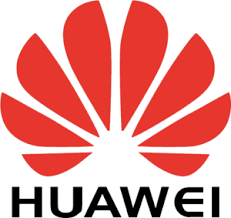.Says digitalization enables smarter, safer oil and gas camp management
UGO AMADI
Worried over the incessant oil theft, great financial loss and illegal bunkering impacts on the environment and the Nigerian economy, Chinese technology company, Hauwei Technologies said it had developed an intelligent pipeline monitoring system to help tackle crude oil theft in Nigeria.
Mr Li Wei, Director of Huawei Nigeria Enterprise Business, disclosed this at a news briefing on the sidelines of the ongoing Nigerian International Energy Summit (NIES) in Abuja ,stressing that the developed real-time oil and gas pipeline monitoring and surveillance system is capable of putting a whole stop to the never-ending loss in the country.
It could be recalled that NNPC monthly report indicates that Within the period of March 2020, 19 pipeline points were vandalized representing about 47 per cent decrease from the 32 points recorded in February 2020. Atlas Cove-Mosimi accounted for 53 per cent, while Mosimi-Ibadan recorded 21 per cent and Suleja-Minna accounted for the remaining 26 per cent.
Even though the report assured that NNPC, in collaboration with the local communities and other stakeholders, are continuously striving to reduce the menace to the barest level.
Also, Shell Petroleum Development Company of Nigeria, SPDC’s General Manager, External Relations, Igo Weli, disclosed that in 2020 that “SPDC JV lost about 10,000 barrels per day (bpd) of oil or N202 million lost daily from its pipelines to crude oil thieves in the Niger Delta. “This is a reduction from the loss of around 11,000 bpd in 2018 and about 9,000 bpd of oil lost daily in 2017.“These attacks were on critical assets that produce the crude oil, which accounts for over 90 percent of Nigeria’s foreign exchange earnings and the bulk of government revenue. He said
Interestingly, all efforts of the Federal government to curtail the illegal diversion of oil in the Niger Delta by increasing its security spending in recent years and devoting millions of naira annually to hire private security firms as well as equipping men and officers of the Nigeria Security sector saddled with the responsibility of protecting government facilities, incessant destruction of pipelines and other oil facilities across the country as well as trade-in stolen oil by criminal cartels with international connections have continued unabated
It is worrisome that Illegal bunkering and Oil theft have continued to threaten the growth and survival of the Nigerian economy and has continued to cause pollution of the environment in the Niger Delta region. The combination of crude oil theft, illegal refining and pipeline vandalism has become a major threat to Nigeria in meeting the Government’s revenue projections in recent times.
It has also been reported that every day, oil companies in Nigeria lose between 300,000 and 400,000 barrels of oil to illegal theft. Theft accounts for roughly 15 percent of the total number of barrels per day produced. Although estimates of how much oil is stolen per day in Nigeria vary, the British think-tank ‘Chatham House’ reports that over 100,000 barrels of oil was estimated to be stolen per day. Also, the United Nations Security Council estimates that Nigeria lost $2.8 billion of revenue to oil theft in 2017.
The impact of these criminal activities on the safety of people and the environment is huge. This includes degraded local environments, pollution of the environment at tap points. Over 50% of the crude oil siphoned in the process due to high pressure, besides the waste of oil residues, are pumped into the creeks, rivers, farmlands, ponds, lakes, thereby blighting the environment further. The degradation to the environment occasioned by the illegal bunkering and oil theft has reduced arable land for farming and has devastated fishing communities.
Given hope for the nation in combatting the menace of oil theft ,Wei said: “Huawei-developed fiber vibration intrusion warning system uses Artificial Intelligence to identify intrusion scenarios accurately. “With high identification precision, accurate positioning, and quick response, it will help to ensure pipeline safety and reduce theft and vandalism.’’
According to him, Huawei will continue to support the digital transformation of Nigeria’s oil and gas industry by developing Information and Communications Technology (ICT) solutions.
“Faced with the ongoing volatility of international oil prices, Huawei believes that the digital transformation of Nigeria’s upstream sector is a top priority.
“In response to the strategy proposed by the Nigerian government and oil companies, Huawei promotes the digital oilfield Internet of Things and Exploration and Production storage solutions.
“This will help oil and gas companies to achieve real-time visualised production, improve production efficiency, reduce production costs, and optimise production resource allocation to improve oilfield production.’’
Wei said in addition to providing high-quality ICT solutions and services, Huawei actively support the Nigerian government in building a talent ecosystem.
He said the company had signed ICT academy agreement with more than 110 universities and schools and had trained more than 1,000 civil servants and 40,000 young students in Nigeria.
“We hope to build a strong talent base camp to promote Nigeria’s digital economy development,’’ Wei added.
Also, the Chief Representative, Oil & Gas Industry of Global Energy Business Unit, Huawei EBG Li Yangming has noted that camp management is key to the process of oil and gas production and their mis-use can easily lead to accidents, production faults or a breakdown of supply.
He noted this while explaining how new digital technologies are boosting efficiency, safety and productivity in oil and gas camps.
Speaking at NIES on how to overcome the crisis and challenges of data to barrel in the oil & gas industry, with policy-makers and industry leaders as well as Huawei’s latest plans for the oil and gas industry in Africa. He said “The combustible and explosive nature of oil and gas means that these are inevitably high-risk areas. Mis-use of oil and gas camp equipment can easily lead to accidents, production faults or a breakdown of supply. Not only does this bring immediate danger, it can also result in economic losses to large enterprises as well as damage to the surrounding environment.
While routine inspection can mitigate some risk it cannot pinpoint every potential danger. And with legacy equipment in use, possible safety issues cannot be predicted in advance. When combined, all of these factors can pose potential safety risks to the operation of oil and gas camps,” Li said.
Speaking further, Li added: “The answer lies in digital transformation. This can help to boost safety at oil and gas fields, while also reducing costs and improving efficiency. The use of reliable production networks and data ensure that the operations are secure, while technologies such as voice and video interaction between the site and the dispatching centre makes daily processes more efficient. A digital approach also enables resources to be used more efficiently.”
“We are now entering a new era where digital transformation is already driving the evolution of smarter and safer oil and gas camp management. For example, vehicle patrols can be improved using HD video. On many sites, patrol personnel have to be authorised and managed manually while access permits for guest vehicles rely on manual document verification. Patrol video cannot be relayed to the control centre in real time, and patrol reports must be completed manually which is not only time consuming but may result in a lack of detail in safety records.
“Camp management is key to the process of oil and gas production. The combination of IoT and 5G leads to a “1+1 >2” result in production. So far, Huawei has integrated smart O&M, security management, and access control functions into the daily operations of oil and gas camps, while more intelligent features can be realised through our solution, which makes remote collaboration, drone Inspection, and HSE surveillance possible. These implementations are showing how technology makes the operation of oil and gas camps more efficient, more convenient, and safer.
“Huawei is committed to shaping the digital evolution of the oil and gas industry. We recognise the importance of intelligent applications based on technologies such as AI, AR, VR, 5G and we are providing the infrastructure that enables our partners to make use of these innovations to optimise their processes in a way that is secure, reliable and safe.
“Huawei has invested a total of $4 billion researching 5G technology since 2009, submitting 26,600 standards contributions to the 3GPP. Currently, we have more than 10,000 people working on 5G networks. We already work with 85 per cent of the world’s top 20 oil and gas companies across 45 countries and regions with our long list of valued partners including ADNOC, Saudi Aramco, and Total,” Li said.
Given solution to the menace of oil theft ,Mr Niyi Awodeji, who presented a report on oil theft by the Nigeria Natural Resource Charter (NNRC), during an advocacy against crude oil theft and stakeholders engagement seminar organised by the New Nigeria Foundation (NNP) in Port Harcourt, Rivers State noted that Nigeria may continue to lose an estimated N995.2 billion yearly to crude oil theft except the Federal Government adopts efficient technology in metering and mapping movement of crude from extraction to exportation.
According to him the Federal Government should also enforce stringent penalties for oil thieves and their collaborators across the country. He argued that combating crude theft would not only end the loss of N995.2 billion yearly, but would result in increased oil production, export and revenue, thus paving way for economic diversification and investments.
He also identified inflated volumes from drilling, through production to receipt at the refinery allowed for by the oil industry saying this led to white collar’ crude theft by oil companies, as the practice occurs mainly at tank farms, refineries and distribution centres owned and operated the companies.
The truth of the matter is that until illegal bunkering and oil theft is controlled in, the Nigerian economy will continue to suffer the loss of revenue from thousands of barrels of oil every day.

























